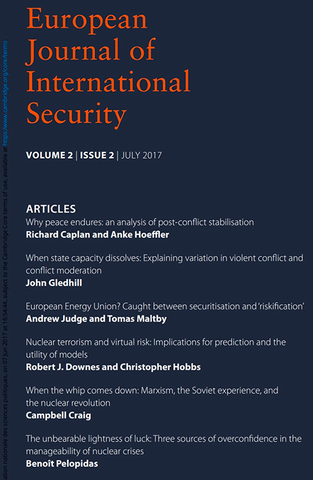
Overconfidence in the controllability of nuclear weapons creates danger. The passing of the last elite witness of the most dangerous nuclear crisis, ie the “Cuban Missile Crisis”, and the incoming Trump administration only make this more salient. In this context, this article reviews the scholarly literature about the limits of predictability and controllability of nuclear crises and investigates three failures of learning from them.
This article elaborates the notion of ‘nuclear idiosyncrasy’ as a specific understanding of what nuclear weapons and energy are, what they stand for and what they can do. It then assesses the persistence of nuclear idiosyncrasy over time and its effects on French nuclear policies in the United Arab Emirates (UAE) and Iran. Based on interviews in France, Geneva and the UAE, this article contributes to three debates within foreign policy analysis and nuclear history. Is a regional approach necessary to understand the framing of foreign policies in the twenty-first century?
By the late 1950s, the Soviet Union had acquired a strong position as a world oil exporter, thanks to major discoveries in the Ural-Volga area. In order to transport their oil to strategic areas within the Union and to Europe, the Soviets devised a project to build a colossal pipeline system. This plan caused anxiety at NATO since Russian oil could be wielded as a weapon to weaken the West both militarily and economically. In order to complete the system, however, the Soviets needed large-diameter steel pipes and equipment, which they had to import from the West. Thus in 1961 the U.S.
Security studies scholarship on nuclear weapons is particularly prone to self-censorship.1 In this essay, I argue that this self-censorship is problematic. The vulnerability, secrecy, and limits to accountability created by nuclear weapons call for responsible scholarship vis-a-vis the general public. This need for renewed and expanded scholarly responsibility is especially pressing given current plans among nuclear-weapon states to “modernize” their nuclear arsenals, committing their citizens and children to live in nuclear-armed countries and, a fortiori, a nuclear armed world.









